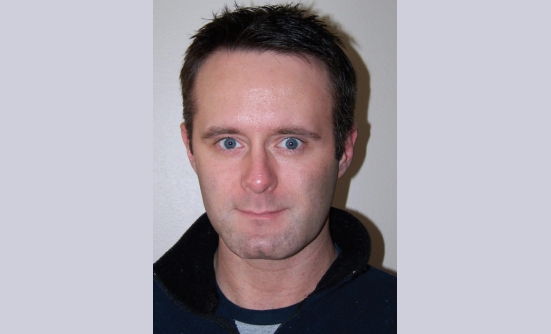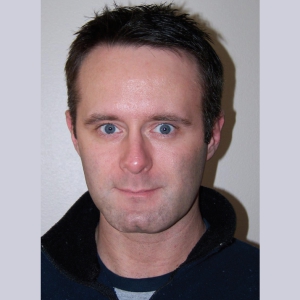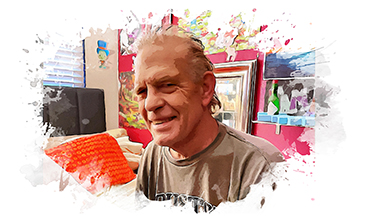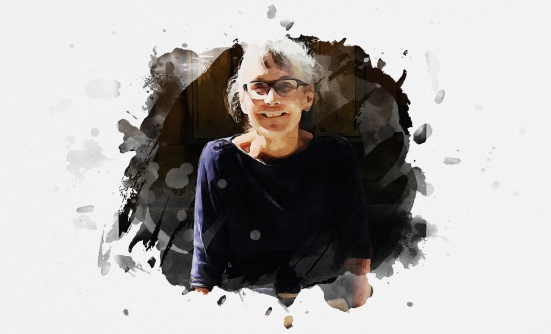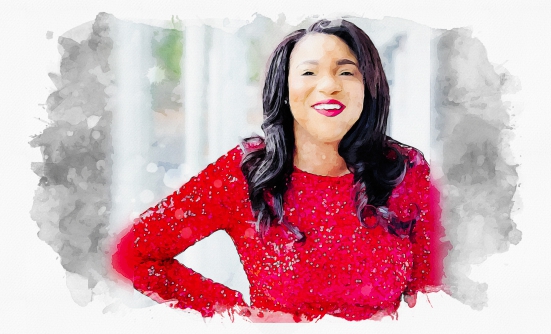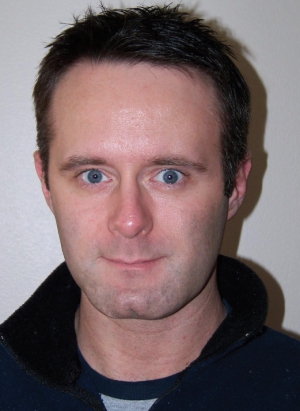
My adventure with pancreatic cancer has been filled with many trials, tribulations, and strong emotions. It all started late August 2021, after an agonizing night of stomach pain that would not go away. I teetered between an urgent care facility or the emergency room, but luckily, I chose the emergency room. That luck quickly evaporated into agony, waiting for an exam, treatment, and much needed pain killers.
After many tests and exams, I received the diagnosis of pancreatic cancer. The cancer would require surgery to remove the tail of the pancreas and the spleen (distal pancreatomy and splenectomy), neither of which I was inclined to give up.
Denial
Emotions began to overflow—resentment, immense fear, and eventually loneliness. I resented my own body for letting me down, and I kept wondering—how could this happen? Although my healthy habits were not top notch, I generally take care of myself, but of course could do better. I was bordering on absolute denial that this could happen to me.
Fear
My consultation with the surgeon and oncologist led to tidal waves of fear: I had to undergo 12 sessions of the strong FOLFIRINOX chemotherapy regimen, and had a port installed in my chest for the intravenous infusion. I did not want something semi-permanent installed in me, like a plug for an electric car. The nurse navigator explained every drug that I would be taking in the chemotherapy regimen and the supplemental drugs.
That just compounded my fear level, with the long list of side effects the chemo and the related drugs could cause, in addition to the port itself; this all sent me into many tearful nights and bouts of depression. This just couldn’t be happening, I thought. I kept wishing with all my might that it would magically go away, that someone had made a terrible mistake, and I was actually okay.
After my diagnosis, I did a lot of research, trying to find alternatives to the chemo and the port: I simply refused to believe that was the only course available. I had a long list of treatment options, from stem-cell therapy, monoclonal antibodies, clinical trials, and even nanotechnology.
Sadly, all these were not appropriate (or approved) for pancreatic cancer, but the oncologist commended me for trying. He reassured me that although this chemo regimen was very strong, it also provided excellent results.
Treatment & Emotional Care
The infusion sessions were done every other week. On Thursday at 7:30 AM I would have blood tests, vitals, then a consultation with the doctor or the nurse practitioner. Around 8:30 AM I would be “plugged in” and start with the pre-medications, then the chemotherapy infusion would start. Around 3 PM they would install the “feeder ball” that delivered the last chemo drug over the course of 46 hours. On Saturday afternoon I would return to the infusion center to get the ball unplugged and get fitted with the Neulasta Onpro Injector device on my shoulder for delivering the medicine, which lasted about 24 hours.
At first I was terrified of the entire process, but after a few sessions I calmed down, spending the time doing work, reading, or watching TV in my private room.
Then came the loneliness. I live alone, and most of my friends and family are an hour away at best. Part of me wanted to shut out everyone, but thankfully, I have an amazing group of friends, family, and extended family who came to my aid many times and in many ways.
I began seeing a wonderful counselor to help with my emotional state and sleepless nights. The sessions are engaging, thought-provoking, and enjoyable as much as a visit with a psychologist can be. I could not have navigated this bumpy journey without my outstanding support group, for which I’m forever grateful.
The surgery was successful; I was lucky that the cancer was diagnosed in time, which is often not the case with this vicious pancreatic cancer. The tumor was small and had not spread to any other part of my body.
After the surgery, I spent 2 days in the ICU, and then I was moved to a regular room I had to share with an older fellow, much to my chagrin, but thus began my epiphany. One fateful night a doctor came to tell him that his cancer was terminal, and explained the options he had. I just listened, cried a little for him and for me, thinking that this could easily have been me!
That 10-minute conversation had a very enduring effect on me and on my perspective related to my diagnosis, treatment, and life viewpoint.
Getting on with Life
My final chemo session was completed in mid-March, and a follow-up CT scan is scheduled for mid-April. I’m confident that I’ll be, and will remain, cancer-free. The staff at the infusion center know me well by now and are beyond wonderful. All of them—nurses, navigators, medical assistants, the nurse practitioner, and the oncologist—have been incredibly helpful, kind, and supportive in my struggle through the infusion sessions. The surgeon and his staff (at a different hospital) were equally supportive.
The sessions went fairly smoothly and developed into a routine, despite the often harsh aftereffects. I am thankful that all my side effects were mainly annoying and/or cosmetic (such as hair loss, neuropathy, fatigue, and digestive issues), and I realize that things could always be much worse.
My employer has been wonderful as well, allowing me to work remotely during my treatment sessions, and thus I have not had to take time off.
I now look forward to getting on with life, putting this behind me, and not letting this diagnosis define who I am. I hope to have the opportunity to give back to the spectacular community as a whole, that got me to this point.
Inspiration
I read and listened to many stories similar to (and different from) my own, and I came across very inspiring words from Bob Marley that guided me from the very beginning: “You never know how strong you are, until being strong is your only choice,” he said.
My advice to anyone in a similar situation: reach deep into your soul to find your strength—you can do it! And for you, your friends, and loved ones, please get a cancer screening as soon as you can. All cancers are hideous, but pancreatic cancer can be one of the most silent and deadly types, unless it is detected early. Peace and luck be with you!





